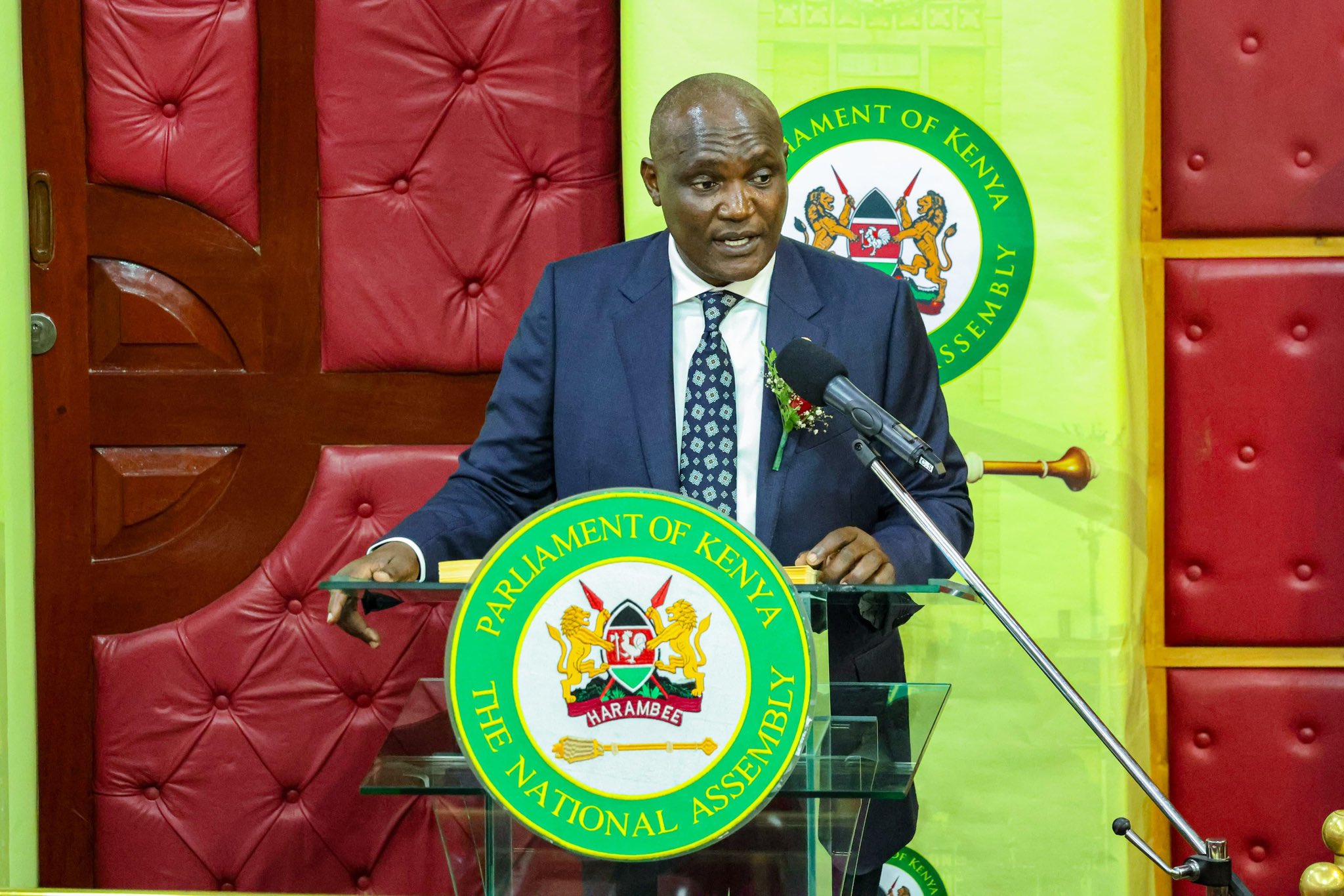
Mbadi braves tear gas to deliver Sh4.2tn budget
Education wins big with Sh702 billion allocation
Kenyans demand accountability as budget allocations stir debate online and on the ground.
In Summary

Audio By Vocalize
 Treasury CS reading the 2025/2026 budget in the Parliament house/X
Treasury CS reading the 2025/2026 budget in the Parliament house/XThe national government on Thursday, June 12, 2025, unveiled a Sh4.29 trillion budget for the 2025/26 financial year, with education, national security, and infrastructure emerging as the biggest beneficiaries.
Treasury Cabinet Secretary John Mbadi, addressing the National Assembly on Thursday, said the budget focuses on stimulating economic recovery and creating jobs under the Bottom-Up Economic Transformation Agenda (BETA), with continued investments in manufacturing, ICT, and the creative economy.
Mbadi said the 2025-26 budget captures the soul and spirit of Ruto’s economic plan, and reaffirms the priority policies and strategies aimed at stimulating economic recovery articulated in the Bottom-Up Economic Transformation Agenda.
“At its core, the budget for the upcoming financial year adopts a value chain approach, focusing on strategic investment in areas that generate the highest impact, particularly in job creation and income generation at the grassroots level,’’ he said.
Despite mounting debt concerns, Mbadi assured that Kenya’s public debt remains sustainable.
“In present value terms, we expect debt to decline from 63 per cent of GDP in 2024 to the target range of 55±5 per cent by 2028,” he noted.
To diversify funding sources, the government will also explore sustainability-linked bonds, diaspora bonds, and debt swaps.
After the 2025/2026 national budget was presented, Kenyans from all walks of life took to the streets and social media to share their views, many expressing both frustration and cautious optimism.
In an interview with The Star, a boda boda rider in Westlands lamented the government’s funding priorities.
“Some dockets got a lot more money than necessary,” he said. “That money should have gone to education or health, where people are really struggling.”
Esther, a mama mboga, echoed similar concerns. “They say education is free, but we are still paying exam fees,” she said. “Last year it was Sh100, now it’s Sh1,100. What’s free about that?”
However, not all reactions were negative.
Godfrey Lumiti, a businessman in Nairobi’s CBD, said he was somewhat satisfied. “At least education received more attention. Those exam fees were a real burden for parents like me,” he noted.
Wambui, a shop owner in the city, felt small businesses were overlooked.
“The allocation to the business sector was too low. Agriculture got more,” she said. “But I’m still happy that farmers will now access affordable fertiliser. That’s good for the economy in the long run.”
On X (formerly Twitter), Kenyans used hashtags like #Budget2025 and #FinanceBillKE to express their opinions.
One user wrote, “Same old story. Health and education are always underfunded, yet those are the basics!”
Another commented, “Finally some relief for farmers. Now let’s hope it actually gets to them.”
Despite the mixed reactions, one thing is clear: Kenyans are closely watching how the budget will be implemented—and whether the allocations will make a real impact on their daily lives.

Education wins big with Sh702 billion allocation

CS Mbadi read the 2025/26 budget on June 12, 2025.

Free primary education dropped from Sh9.1 billion to Sh7 billion.